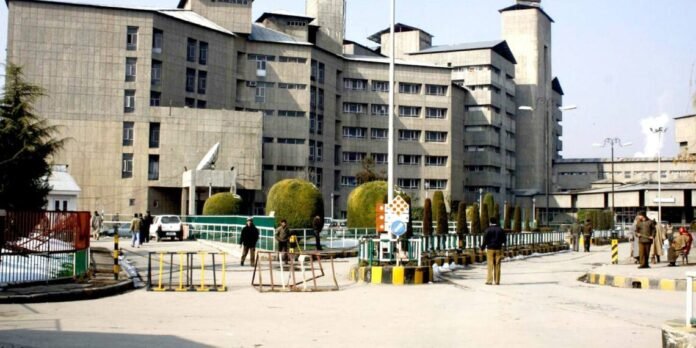Experts say rising lung, breast cancer rates due to tobacco use lifestyle choices, call for serious public awareness
Srinagar, Nov 29: The number of cancer patients in Jammu and Kashmir is witnessing a concerning increase, with approximately 8,500 patients registered at the Department of Radiation Oncology, SMHS Hospital GMC Srinagar since 2017. This year alone, 1,520 new cancer cases have been reported, marking a sharp rise in the prevalence of the disease in the region.
According to details obtained by the news agency—Kashmir News Observer (KNO), the radiation oncology department saw the following number of new cancer patients in recent years: 491 in 2017, 1,032 in 2018, 801 in 2019, 650 in 2020, 1,010 in 2021, 1,169 in 2022, and 1,640 in 2023. The year 2024 has already seen 1,520 new cases, with approximately 4 to 5 new patients being registered daily at the department.
An oncologist at GMC Srinagar said there is a growing trend in cancer cases in the region, saying that lung cancer remains the most common type of cancer among males, while breast cancer is most prevalent among females. He said the rise in lung cancer cases in men is directly linked to the widespread use of tobacco products. “This indicates the magnitude of tobacco consumption in our society and the urgent need for awareness about its harmful effects,” the doctor said.
Similarly, breast cancer in females is often linked to factors like lack of physical activity and obesity. The oncologist said that both lung and breast cancer could be largely prevented by making healthier lifestyle choices, including increased physical activity and reduced tobacco use.
To combat this growing health concern, the department has called for serious public awareness regarding the signs and symptoms of cancer, preventive measures and the importance of early medical evaluations.
The department at SMHS Hospital is equipped with state-of-the-art technology for the diagnosis and treatment of various cancers, including Intensity-modulated radiation therapy (IMRT), Image-guided radiation therapy (IGRT), Stereotactic body radiation therapy (SBRT), Stereotactic radical surgery, and Volumetric Modulated Arc Therapy (VMAT), the doctor said.
He added that the department offers a variety of services such as an inpatient ward, a day-care ward for blood transfusions and chemotherapy, and a terminally ill patient ward. The hospital has essential equipment such as Telecobalt 60, linear accelerators, Brachytherapy and CT simulators, he added.
“Efforts are underway to install a PET scan facility at the hospital, which is expected to be available soon, significantly enhancing the department’s diagnostic capabilities,” the oncologist said—(KNO)





